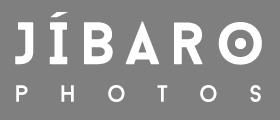Finding Life Amongst Scars
“The transformations coming out of breast cancer treatment are as psychosomatic as they are physical; a central part of recovery lying in finding, accepting, and emanating one’s new self.”
Cuba’s National Health System, over the last five decades, deserves merit for its integrated approach—from producing highly-competent doctors to delivering quality healthcare leading to more equitable patient and population outcomes. This is evident in the island’s extending life expectancy, currently touching 79 and rising! While medical treatments largely and effectively focus on the physical aspects of care and recovery, they often do not expansively address the psychological trauma of breast cancer patients—depression, anxiety, self-image doubts, and identity conflicts—artifacts of the times that legitimize a perception of female worth through stereotypical phantasmagorias of sexuality, libido, body shape, and skin tones.
Invasive treatments for breast cancer, such as mastectomy come with long-lasting implications for societal consciousness around femininity, sexuality, relationships, and even motherhood. Radiation and chemotherapy almost always go hand-in-hand with hair loss and skin pigmentation, further blows to symbols of beauty and desire. The transformations coming out of breast cancer treatment are as psychosomatic as they are physical; a central part of recovery lying in finding, accepting, and emanating one’s new self. This is an identity marked with scars, viewed as trophies if men carry them from the battlefield, but as badges of sympathy and misfortune on women fighting death.
View Gallery
© Leysis Quesada Vera, 2020. All images on this page.
This ongoing project became personally significant to me when my cousin, Lissette Cernada Vera was diagnosed with breast cancer and is now fighting an advanced stage of the disease. During my visits to support her through treatments, I came in touch with Dr. Alexis Cantero, Director of the “Alas por la Vida” project, thanks to whom I’ve had the resolution to develop an endeavor as challenging as this. Alas por la Vida was formed over 16 years ago with the specific goal of supporting the emotional healing of patients.
While cancer patients in Cuba have the advantage of not having to pay for treatments, there are limitations around availability of certain medications and the lack of structured support around the emotional ordeal of breast cancer treatment. Women in Cuba play a pivotal role both at home and the workplace, contributing to family income and sharing the benefits and burdens this achievement implies. Most women are primary caregivers for their children and elderly dependents in the family. Such societal dynamics create specific setbacks for women who have to “step back” to undergo several months of treatment.
My visual documentation has concentrated on the traumatic diagnosis of breast cancer, from the preparations and artifacts to face the physical transformations (wigs, gloves, prostheses etc.), navigating family and social relationships, to seeking refuge in religion—all in an effort to reconstruct life ahead. As much as I pray for and support Lissette in this journey of hers, it is, in fact, her courage that keeps me going on with this project. Over 2,500 women in Cuba are diagnosed with breast cancer every year. There is a Lissette in each one of them as they fight cancer and find an identity marked with scars—different, unknown, and testing, yet one that takes them towards life.
“Finding Life Amongst Scars” is a work in progress that strives to learn and discover much more about the identity and consciousness of women battling breast cancer in Cuba. Quesada Vera thinks of this project not as something she picked but as one life chose for her. She plans to amplify the reach of her work while supporting “Alas por la Vida” in its cause through her art. Quesada Vera, through this project, grows her understanding of the emotional nuances facing women battling breast cancer, as well as helping friends and family affected by this disease.















